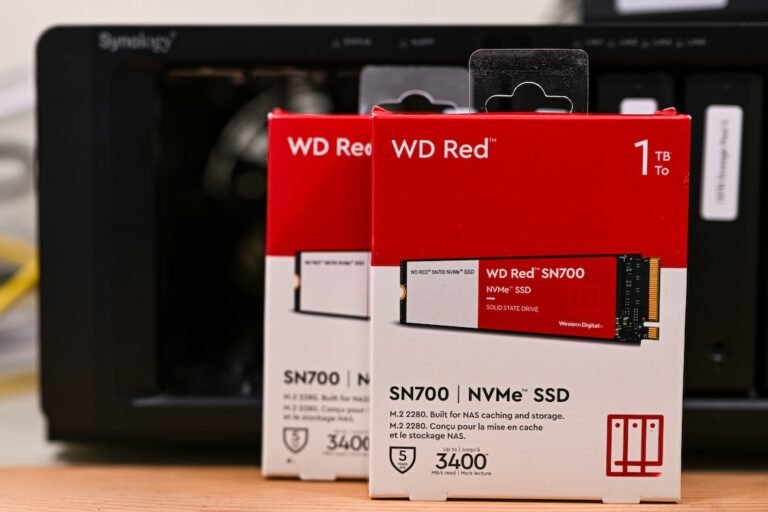Introduction
Have you ever wondered how secure your home automation system is? With the rise of smart devices and interconnected networks, it’s more important than ever to ensure that your router and Wi-Fi network are protected from potential security breaches. In this article, we will explore the topic of enhancing router security for home automation and discuss best practices for securing your Wi-Fi network. We’ll dive into the vulnerabilities of home automation systems, the importance of router security, and provide practical tips to safeguard your network. So let’s get started!
Understanding Home Automation Vulnerabilities
Home automation has transformed the way we live, providing convenience, energy efficiency, and comfort. However, with all the benefits that come with smart devices, there are also potential vulnerabilities that can expose your network to security risks. Let’s take a look at some of the common vulnerabilities of home automation systems:
Weak Passwords: Many users make the mistake of using weak passwords or not changing the default credentials on their smart devices. This makes it easier for hackers to gain unauthorized access to your network.
Outdated Firmware: Manufacturers regularly release firmware updates to fix security flaws and improve device performance. Failing to update the firmware on your devices leaves them vulnerable to known exploits.
Insecure Network Configuration: Incorrectly configured networks can leave your sensitive data exposed. For example, leaving your Wi-Fi network open or without encryption allows anyone within range to connect and potentially access your devices.
- Lack of Device Authentication: Without proper device authentication, attackers can impersonate your devices and gain control over your home automation system. This can result in unauthorized access and potential misuse of your devices.
Now that we understand some of the vulnerabilities, let’s explore why router security is crucial for protecting your home automation system.
The Importance of Router Security
Your router acts as the gateway between your home devices and the internet. It serves as the first line of defense against cyber threats. Here are some reasons why router security is vital for your home automation system:
Network Segmentation: By properly securing your router, you can create separate networks for your home automation devices, keeping them isolated from your main network. This way, even if one device is compromised, the rest of your network remains secure.
Firewall Protection: Routers come equipped with built-in firewalls that monitor incoming and outgoing traffic. Properly configuring the firewall settings can prevent unauthorized access and filter out malicious traffic.
Strong Encryption: Enabling WPA2 (or the latest WPA3) encryption on your Wi-Fi network provides an additional layer of security. It encrypts the data transmitted between devices, making it harder for attackers to intercept and decipher.
- Access Control: Router security allows you to control which devices can connect to your network. By utilizing MAC address filtering or setting up a guest network, you can restrict access to only trusted devices and limit potential vulnerabilities.
Now that we understand the importance of router security, let’s explore some practical tips to enhance your Wi-Fi network security.
Practical Tips to Enhance Router Security
Change Default Credentials: Begin by changing the default username and password for your router’s admin interface. Choose a strong password that includes a combination of uppercase and lowercase letters, numbers, and special characters.
Update Firmware Regularly: Check for firmware updates provided by the manufacturer and apply them promptly. This ensures that your router has the latest security patches and performance improvements.
Enable Network Encryption: Set up WPA2 or WPA3 encryption on your Wi-Fi network. Avoid using outdated and insecure encryption methods such as WEP. Additionally, choose a strong and unique network password that is not easily guessable.
Disable Remote Management: Unless necessary, disable remote management of your router. This prevents unauthorized access to your router’s settings from outside your network.
Use a Guest Network: If your router supports it, configure a separate guest network for visitors. This network isolates guest devices from your main network, minimizing the risk of unauthorized access to your home automation system.
Regularly Monitor Connected Devices: Keep an eye on the devices connected to your router. If you notice any unfamiliar devices, promptly investigate and take appropriate action, such as changing your Wi-Fi password or restricting access to specific MAC addresses.
- Consider VPN (Virtual Private Network): A VPN creates an encrypted connection between your devices and the internet, adding an extra layer of security. When accessing your home automation system remotely, consider using a reputable VPN service to keep your communication secure.
Conclusion
Enhancing router security for home automation and securing your Wi-Fi network is crucial in today’s interconnected world. By following the practical tips mentioned in this article, you can significantly reduce the risk of cyber threats and protect your home automation system. Remember to regularly update your firmware, choose strong passwords, enable encryption, and implement access control measures. Stay vigilant and ensure that your devices are safe and your network is secure. Enjoy the convenience of a smart home without compromising your privacy and security.
FAQ
Q: How do I set up a secure home network?
A: Setting up a secure home network involves steps such as changing default router credentials, using strong encryption, creating separate networks for devices, and regularly updating firmware. For a detailed guide on setting up a secure home network, check out our article on home network setup.
Q: What should I do if my router is not working properly?
A: If you’re experiencing issues with your router, troubleshooting steps such as resetting the router, checking cable connections, or updating firmware can help resolve the problem. For in-depth troubleshooting tips, refer to our guide on router troubleshooting.
Q: Can a router be hacked?
A: Yes, routers can be vulnerable to hacking if they are not properly secured. Weak passwords, outdated firmware, and insecure configurations can make routers susceptible to unauthorized access. Following best practices for router security can help mitigate the risk of hacking.
Q: What are mesh Wi-Fi systems?
A: Mesh Wi-Fi systems utilize multiple devices called nodes to create a mesh network that provides seamless Wi-Fi coverage throughout your home. This system can enhance network security by using advanced encryption methods and allowing for easier network segmentation. For more information, check out our article on mesh Wi-Fi systems.
Q: Are open-source router firmware secure?
A: Open-source router firmware, such as DD-WRT or OpenWrt, can offer enhanced security features and customization options. However, it’s essential to keep the firmware up to date and configure it correctly to ensure maximum security. For more information, read our article on open-source router firmware.
Further Reading
For more information on router security, home automation, and related topics, check out the following resources:
| Website | Description |
|---|---|
| Router Security Guides | Provides comprehensive guides on router security and Wi-Fi network best practices. |
| Home Automation Tips | Offers insights and tips on securing your smart home automation devices and networks. |
|




